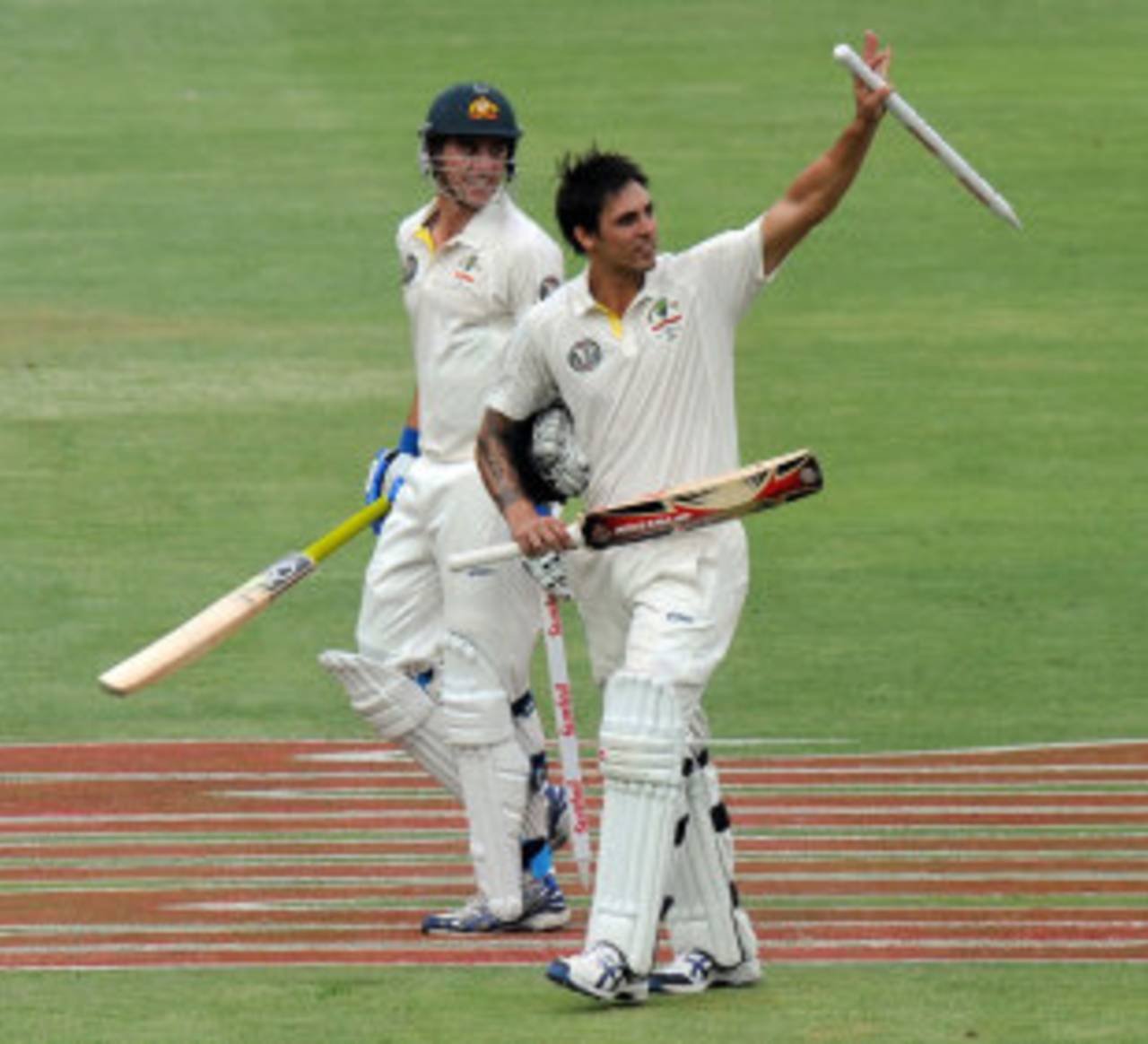Two Tests not enough for a marquee series
Scheduling a two-Test series between Australia and South Africa, rivals with a rollicking recent history, was madness. And as a result, the series has no winner
Brydon Coverdale
21-Nov-2011

Nobody who watched the two Tests will forget the way Cummins and Philander sparked their sides • AFP
Ask the average South African or Australian cricket fan who won the Tests between the two sides in 2008-09 and they'll probably be able to tell you. Six gripping Tests were played and each side won three, both teams winning their away series. It was a magic home-and-away battle, full of memorable moments. Ask the same people who won the one-dayers or Twenty20s on those same trips, and expect a blank look.
In two years' time few people will recall, or care, who won the T20s and ODIs played in South Africa over the past six weeks. But the Tests, what with 47 all out, 23 wickets in a day, Australia's Wanderers chase, and the emergence of Pat Cummins and Vernon Philander, will be remembered. And fans will wonder how on earth it was only a two-Test series.
The balancing act between Test cricket and the shorter formats is necessary; boards make more money from T20s and ODIs, and cash has become king in cricket. But it cannot be at the expense of quality Test cricket. Scheduling a two-Test series between Australia and South Africa, rivals with a rollicking recent history, was madness. And as a result, the series has no winner.
The boards of both countries are stakeholders in the Champions League T20, which was played shortly before Australia's tour began. And the Australians need to return home for their own summer of cricket, which begins in nine days against New Zealand. But it remains a mystery how a third Test could not have been squeezed in, when it took 16 days to play five games in the short formats.
"I said that before the series, I think it's disappointing," South Africa's captain, Graeme Smith, said of the lack of a third Test. "When you have top teams playing each other it's always exciting, it's always competitive and it's good for Test cricket. The last few series we've played have been that way. This was no different. We would have loved to have had more. In the future that's certainly something that the administrators can look at."
Australia's captain, Michael Clarke, was so exhausted at the end of the tense Johannesburg win that he wasn't sure he could handle a third match. But of course he would have loved the opportunity to lead Australia to a 2-1 series victory.
"Yes, now you would say it would have been amazing [to play three]," Clarke said. "I love winning. There's nothing better than winning. But I think the way the series has panned out, a 1-1 draw, is a fair indication of where the teams are at."
Occasionally, a two-Test series can be justified, especially if the disparity between the teams is significant. But Australia and South Africa have provided some of the finest Test cricket when they have met in recent history, and combining their contests at home and away in 2008-09 with the series that has just finished, the results stand at 4-4.
"Hopefully it's a big thumbs-up for Test cricket," Smith said. "I think hopefully the way people will talk and write and present the series will be in a positive light. Especially after the disappointment of the ICC not taking on the Test championship, I think this was obviously a big tick for Test cricket.
"Both teams played 100% cricket. It probably wasn't always pretty at times and not as skilful as what we would have liked, from a personal point of view, but I think it was all out there. Both teams left it all out there. Hopefully it was a big positive for Test cricket going forward."
Smith was right. It wasn't always pretty. But it was always mesmerising. The teams provided fans with eight days of Test cricket that had it all. Both sides suffered calamitous collapses, Australia's 47 in Cape Town following quickly on from South Africa being dismissed for 96.
Hashim Amla scored hundreds in both Tests. Clarke opened the series with a brilliant captain's century in trying conditions. Shane Watson starred with ball and bat and broke down. Ricky Ponting, Brad Haddin and Mitchell Johnson all faced a last chance in Johannesburg, and all played key roles in Australia's win.
Most exciting, both sides handed debuts to exciting fast bowlers who delivered beyond expectation. Cummins was Man of the Match in Johannesburg and Philander was the Player of the Series. Nobody who watched the two Tests will forget the way Cummins and Philander sparked their sides. The same can't be said of the limited-overs games.
Brydon Coverdale is an assistant editor at ESPNcricinfo